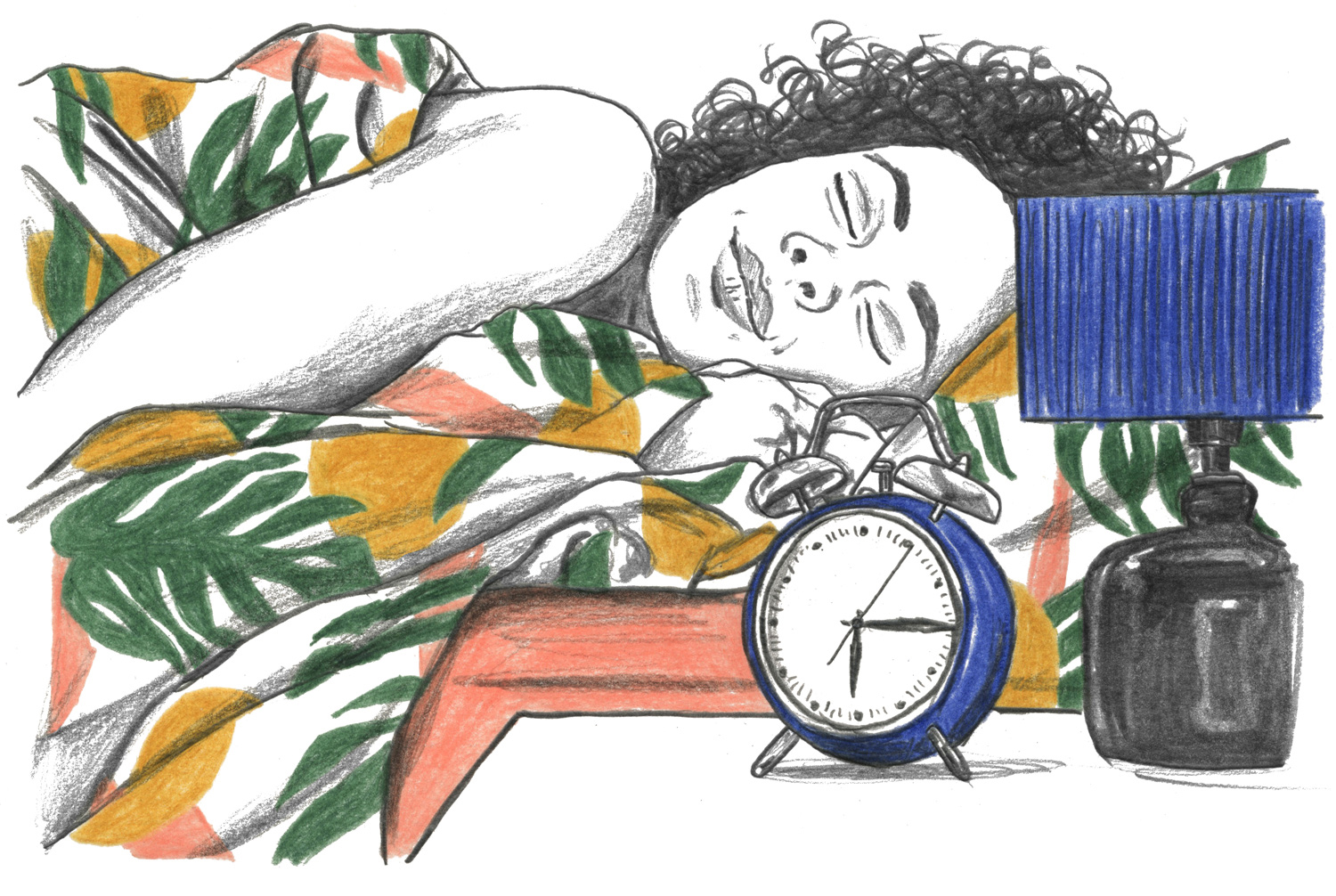Sleep is crucial. It supports cognitive function, physical health and emotional well-being. Yet the Canadian Sleep Society estimates that at any given time 40 per cent of Canadians are suffering from symptoms of insomnia. David Samson, the director of the Sleep and Human Evolution Lab at U of T Mississauga, has tips for those of us who need to up our zzz’s.
Adopt a consistent sleep schedule
Maintaining regular sleep-wake cycles helps synchronize our internal clock with the external environment, promoting better sleep quality and overall well-being. Shift work or travel across time zones can negatively affect circadian rhythms.
Create a good sleep environment
Keep the bedroom cool, dark and quiet. Avoid fluorescent and LED lights, and don’t use electronics such as TVs or smartphones two to three hours before bedtime. The blue light emitted by these devices mimics daylight, which triggers alertness and suppresses melatonin production – a hormone crucial for sleep.
Manage stress
Stress can disrupt sleep patterns, leading to insomnia or fragmented sleep. Sedentary behaviour can do this, too. Mindfulness meditation or deep breathing exercises can calm the mind and prepare it for better sleep.
Be Mindful of Metabolism
Eat no later than 3 hours before your desired sleep period. Metabolic disturbances can lead to fragmented sleep patterns, where you might wake up multiple times during the night. This can prevent you from experiencing the full cycles of sleep, affecting the overall quality of your rest.
Avoid alcohol and caffeine
The stimulating effects of caffeine can inhibit the ability to fall asleep and should be avoided at least four hours before bedtime. Alcohol, although a sedative, is known to suppress rapid eye movement sleep (crucial to memory retention and emotional regulation). It can also trigger sleep apnea, which constricts breathing.







No Responses to “ Improving Your Shuteye ”
My meditation technique is 10 slow, relaxing belly breaths, while making a sound such as do, ray, me. Sound can help distract us from what I call the knock, ping and run on of the mind.